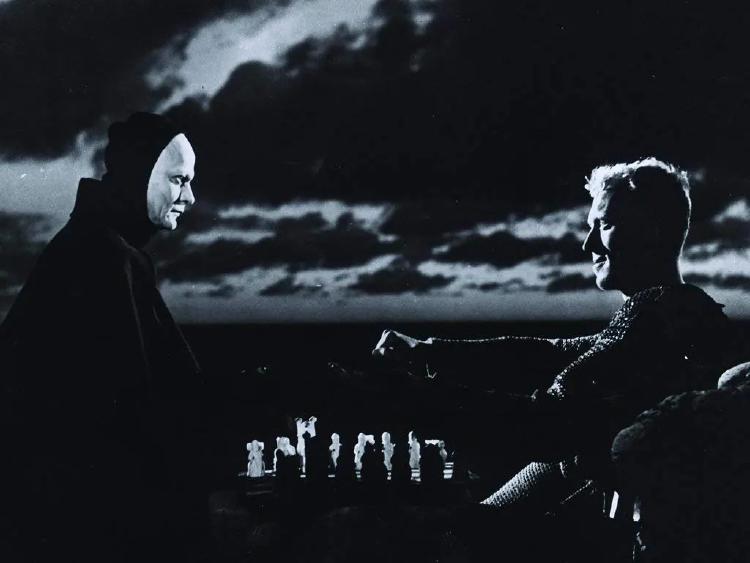The Escape
This dream encapsulates a significant part of the psychological and spiritual journey, emphasizing transformation, acceptance, and the ongoing quest for meaning.
- 4 min read

Some dreams are not messages, but meetings. They are encounters with what cannot be explained—only endured. This dream was one of those.
The Dream
The sky churned with storm clouds, a canvas of fire and smoke painted by war. I was one of many—another refugee swept up in the tide of desperation. We all pushed forward with one hope: escape.
The train station was chaos. Bodies surged, panicked. I boarded the train and by some miracle found an empty seat. I collapsed into it, the rhythm of the tracks offering a fragile sense of safety.
Then we reached the next stop.
The doors hissed open.
And he boarded.
A figure cloaked in black, gliding through the crowd without resistance. The others seemed to part around him involuntarily. He sat beside me.
I didn’t need to ask who he was.
It was Death.
My breath froze, my body locked in place. But when I dared to look at him, my terror flickered—something in his face was human and beautiful. His skin was pale, almost luminous. His eyes held centuries of sorrow.
I felt not fear, but empathy.
I whispered a greeting. “I’m glad to have someone to talk to.”
He smiled faintly. “You are braver than most.”
And we spoke.
Not as predator and prey, but as fellow travelers. About war, about absurdity, about nothing and everything. And then, somehow, we laughed.
Time unraveled in that train car. The world outside became streaks of color. I forgot who he was.
Then I asked, “What happens when we die?”
He leaned toward me, as if ready to reveal the answer.
But the conductor interrupted: “Final destination. All passengers must disembark.”
The moment shattered.
Death stood, still smiling, and stepped off the train.
I never got my answer.
But I was changed.
My Interpretation
This dream is not about death in the literal sense—it is about transformation. I did not meet Death as an enemy, but as a companion. A fellow traveler. What began as a desperate flight from danger became something else entirely: an invitation to witness the archetypal psychopomp.
The War and the Flight
The setting—a land torn by war—mirrors my inner state. It reflects a world of fear, fragmentation, and upheaval. I was not fighting. I was running. This was not the hero’s battlefield, but the soul’s search for safety.
The crowd, the chaos, the pressure to escape—they all point to a psychic transition already in motion. I was on the threshold of something unknown.
The Train as Liminal Space
The train becomes the axis mundi of this dream. It is a space between worlds—neither battlefield nor sanctuary. It moves through zones of meaning. A container for transition. A place where ordinary rules dissolve.
That I find a seat—solitude, stability—feels like a temporary reprieve. But nothing in liminal space stays fixed for long.
Death as the Psychopomp
When Death sits beside me, the dream reaches its center.
He is not monstrous. He is beautiful, sorrowful, and knowing. This is the archetype of the psychopomp—the guide of souls, the one who walks between worlds.
He is not there to take me. He is there to speak.
And I speak to him—not with dread, but with curiosity.
This shift marks a profound internal movement: the fear of death giving way to relationship with it. The psyche no longer flees from the unknown—it makes contact.
The Withheld Answer
I ask the question everyone longs to ask: “What happens when we die?”
And just before he answers—reality intervenes. The train stops. The moment ends.
This is not a failure. It is the very nature of deep mystery.
I do not get the answer. I never will.
But something more important happens: I learn that I can ask. That I can sit with death. Laugh with it. Live with it.
The absence of the answer is not a punishment. It is a reminder that some truths cannot be spoken. Only approached.
A Meeting, Not a Message
This was not a dream of symbols to decode. It was a dream of presence.
I met Death.
And he was not terrifying.
He was tired. Kind. Human.
And he was waiting, just as I am.
Final Reflection
This dream sits with me like a quiet companion.
I do not fear death, but I do not understand it. What I do know is that when the time comes, I will not be alone.
I’ve already met him.
comments powered by Disqus